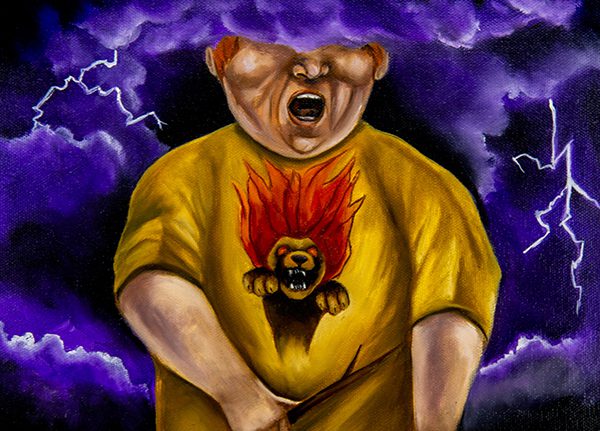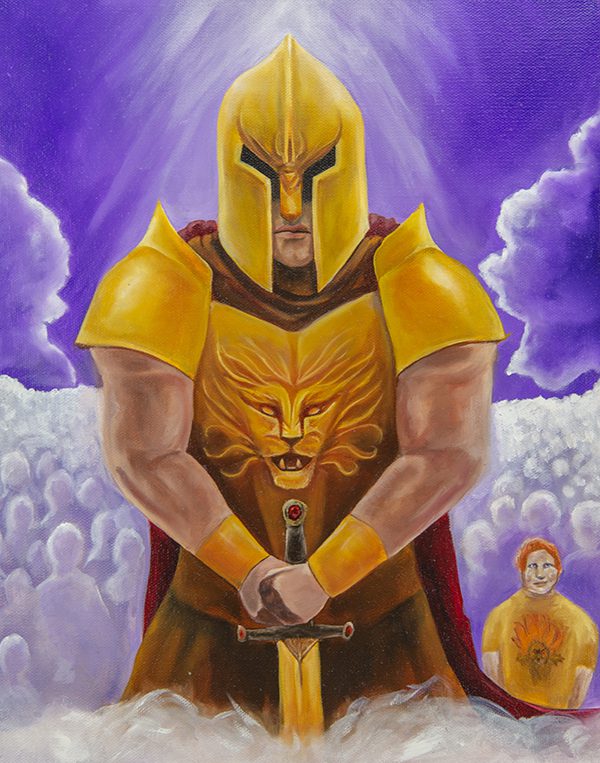The Bully
One of the key features of the Bully is their childishness. They throw tantrums and they rage when they don’t get what they want or people don’t respond to them how they prefer. The Bully tries to amplify themselves, blowing themselves up like caricatures of intimidation and power but they are really scared underneath. They are afraid of their own power. The Bully senses that others will rally around him/her and be loyal regardless. This is tempting for the Bully because they have not learned to channel their own power so they need to be propped up by others.
The Bully is lonely and feels isolated much of the time. They elevate themselves so that they are bigger and better than anyone else but it is a cover for the fear that lies beneath. They have to hold up a heavy barrier against feelings of vulnerability and humility. They are afraid of weakness above all else and yet the Bully is weak. The feel their own power but then cannot control it. They instead, vent it out in rages and tantrums. They would rather threaten than follow through on their threats. They want to others to perceive them as undefeated rather than prove their own strength through fair play. They think nothing of cheating or gaming the system to their own advantages. Whatever it takes to protect their image is the primary motivator.
The Bully is also a bully to themselves. They have high expectations and when they fail to meet them, their inner voice can be alarmingly cruel. They abuse themselves harshly and will often find suffering and punishment as means by which they can be toughened. The Bully uses this logic to help reinforce their own perceptions of themselves as strong and powerful. But self punishment can be a sign of weakness, an unwillingness to face the uncomfortable truth of one’s own behavior.
Some words and phrases associated with the The Bully Archetype
- 1.Arrogant
- 2.Demanding
- 3.Childish
- 4.Fear
- 5.Cheater
- 6.Rage and Anger
- 7.Isolated
- 8.Self Abuse
The Defender
The Defender archetype is a strong figure, a leadership type who commands a certain respect wherever they go. They know they are powerful and can use that power for good or evil but they choose to use it for good. The Defender likes to be in the center of things. Not in an egotistical way but as force of protection. There are some similarities to the Warrior here as both archetypes have a keen sense of their innate power and force to harm others. One of the key features of the Defender archetype is restraint. The Defender is disciplined at holding back their strong energy and carries it within them instead of pushing it on to others.
The Defender is drawn to leadership roles. They prefer to be at the helm, leading the charge for others to follow. People are drawn to the Defender types because they get things done. They can hold their ground and seem almost immune to criticism and rejection. They are very resilient and can rebound from setbacks and failures unscathed. They have seemingly endless energy and resources. Their willingness to stand up for others, to inspire people to follow them and their resistance to intimidation causes others to be drawn to the Defender. They inspire great loyalty and devotion and are always good for their word.
Though their outward appearance is formidable they have a soft underside. They are actually quite sensitive and would do well with a loving companion and supportive friends. They typically love family life as long as they are able to be in the leadership role. The Defender becomes frustrated if pushed to the background or disregarded. They have a strong sense of honor and duty and find great satisfaction in building organizations, businesses and systems that serve others.
Defenders make excellent entrepreneurs, business owners, lawyers, ambassadors, negotiators, military commanders and would do well in many other powerful positions.
Some key words and phrases associated with this archetype:
- 1.Strong
- 2.Protective
- 3.Restrained
- 4.Leader
- 5.Unyielding
- 6.Resilient
- 7.Formidable
- 8.Honorable
A few questions to ask to help transform the Bully into the Defender
- 1.How are you perceived by others compared to how you perceive yourself?
- 2.Are your methods for dealing with other people creating trust and safety?
- 3.Who knows the real you? Who is allowed to see past the false front?
- 4.What would it mean if others saw you as vulnerable, sensitive or kind?
- 5.Can you learn to the art of negotiation?
- 6.What are you afraid of? Can you acknowledge this fear to a loved one?
- 7.How do you feel when your power is used to defend and protect others?
- 8.How can you take care of the scared little boy or girl inside of you?
- 9.Who needs the power of your protection and defense?



